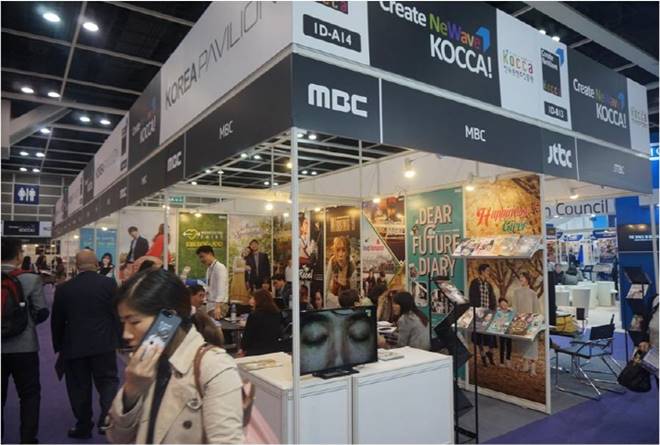
South Korea has experienced an increase in the export of its culture contents including dramas, entertainment shows and animation despite a China ban.
According to the Ministry of Culture, Sports and Tourism (MCST) and the Korea Creative Content Agency (KOCCA), culture content exports in two trade fairs in France and Hong Kong totaled US$51.44 million, which increased compared to last year.
In April, Korean companies participated at the MIPTV in Cannes, France and sealed deals in broadcast contents amounting to US$37.69 million, an increase of 15.5 percent from last year, according to Yonhap News.
About 3,141 companies from 100 countries participated in the largest TV and online content trade show including Korea's KBS, MBC, SBS, CJ E&M and JTBC.
Korean TV shows that were sold include "Infinite Challenge," "Good Manager," "Glorious Temptation" and "I Can See Your Voice."
At the Hong Kong International Film and TV Market (FILMART), Korean firms sold contents worth US$13.75 million, an increase by 7.9 percent.
One MCST official said, "It's very encouraging that we have achieved great results in the overseas market in the first half of the year despite the difficulties in the Chinese market. We'll continue to support companies' efforts to diversify their export markets."
MCST said the deals are a result of efforts to diversify target markets for Korean culture contents due to the ongoing ban of TV and entertainment shows in China, which is Korea's biggest importer of such content.
China imposed a ban on Korean TV shows and celebrities as retaliation for South Korea's decision to deploy the Terminal High Altitude Area Defense (THAAD) system in the country.
South Korea agreed to use the US-made anti-missile defense system to thwart any attack from North Korea.
China has protested against THAAD, saying the system's radar can be used to spy in its area. Protests against THAAD and Korean companies were held in China.
As a result, South Korea's tourism industry was also badly hit as the number of Chinese tourists sharply decreased, prompting the country to focus on other markets such as Southeast Asia.


